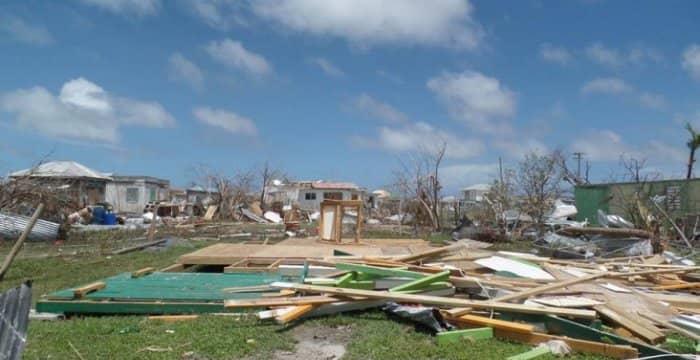
The Influence of Hurricanes and Earthquakes on Antigua and Barbuda’s Energy Infrastructure
SOURCE: Energy Portal EU – Natural disasters, such as hurricanes and earthquakes, have a significant impact on the energy market in Antigua and Barbuda.
These events not only disrupt the supply of electricity and fuel but also damage critical infrastructure, resulting in long-lasting effects on the economy and the lives of the island’s residents.
As climate change continues to exacerbate the frequency and intensity of these disasters, it is crucial to understand their influence on the energy sector and explore potential solutions to mitigate their consequences.
Located in the Eastern Caribbean, Antigua and Barbuda are no strangers to the devastating effects of hurricanes.
In recent years, the islands have experienced some of the most powerful storms on record, such as Hurricane Irma in 2017, which caused widespread destruction and left thousands without power.
The energy infrastructure in Antigua and Barbuda is particularly vulnerable to hurricanes due to its reliance on imported fossil fuels and an aging power grid.
When a hurricane strikes, it can damage power lines, substations, and generation facilities, leading to widespread blackouts and fuel shortages.
Moreover, the destruction of roads and ports can make it difficult to transport fuel and repair equipment, further exacerbating the crisis.

In the aftermath of a hurricane, restoring power and fuel supplies can take weeks or even months, causing significant economic losses and hardship for the affected communities.
In addition to the immediate impacts, hurricanes can also have long-term effects on the energy market.
For example, the destruction of infrastructure can lead to increased costs for repairs and reconstruction, which can ultimately be passed on to consumers in the form of higher energy prices.
Earthquakes, while less frequent than hurricanes in Antigua and Barbuda, can also have severe consequences for the energy sector.
The islands are located near the boundary of the Caribbean and North American tectonic plates, making them susceptible to seismic activity.
In the event of a significant earthquake, power plants, transmission lines, and other energy infrastructure can be damaged or destroyed, leading to power outages and fuel supply disruptions.
Furthermore, earthquakes can trigger secondary disasters, such as tsunamis and landslides, which can cause additional damage to energy infrastructure and further complicate recovery efforts.
Given the significant risks posed by natural disasters, it is essential for Antigua and Barbuda to invest in measures that can enhance the resilience of their energy infrastructure.
One potential solution is to diversify the energy mix by incorporating renewable energy sources, such as solar and wind power.
Renewable energy systems are generally more resilient to natural disasters than traditional fossil fuel-based infrastructure, as they can be decentralized and are less reliant on vulnerable supply chains.
In addition, renewable energy can help reduce the islands’ dependence on imported fuels, which can be disrupted during a disaster.
Another critical aspect of enhancing energy resilience is investing in modernizing and upgrading the power grid. T
his can include implementing smart grid technologies, which can help detect and isolate faults more quickly, reducing the duration of power outages.
Furthermore, strengthening transmission lines and other infrastructure can help minimize the damage caused by hurricanes and earthquakes, ensuring a more reliable energy supply for the islands’ residents.
In conclusion, the impact of natural disasters on Antigua and Barbuda’s energy market is significant and far-reaching.
Hurricanes and earthquakes can cause extensive damage to energy infrastructure, leading to power outages, fuel shortages, and increased costs for consumers.
To mitigate these risks and enhance the resilience of the energy sector, it is crucial to invest in renewable energy sources and modernize the power grid.
By doing so, Antigua and Barbuda can ensure a more secure and sustainable energy future for its citizens, even in the face of increasing natural disaster threats.
CLICK HERE TO JOIN OUR WHATSAPP GROUP
CLICK HERE TO JOIN OUR WHATSAPP GROUP
CLICK HERE TO JOIN OUR WHATSAPP GROUP
CLICK HERE TO JOIN OUR WHATSAPP GROUP
CLICK HERE TO JOIN OUR WHATSAPP GROUP
CLICK HERE TO JOIN OUR WHATSAPP GROUP
Advertise with the mоѕt vіѕіtеd nеwѕ ѕіtе іn Antigua!
We offer fully customizable and flexible digital marketing packages.
Contact us at [email protected]
















They want us to move away from fossil fuels so we can’t get fuel from Venezuela, and soon Guyana. They want us to depend of batteries and solar panels from them, which they manufacture in China, on the backs of religious and political prisoners, with raw materials sourced from Africa and Latin America for peanuts
Comments are closed.